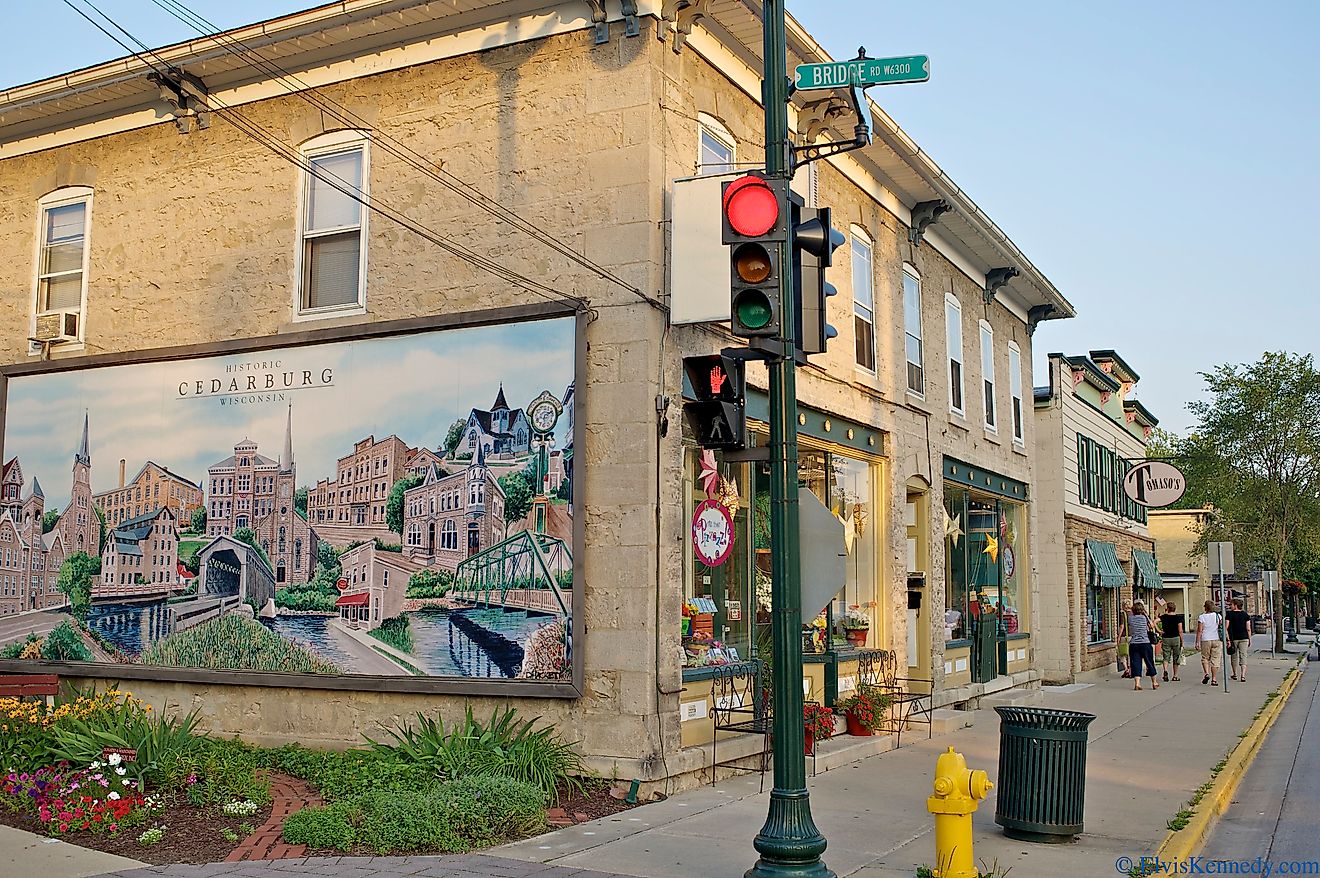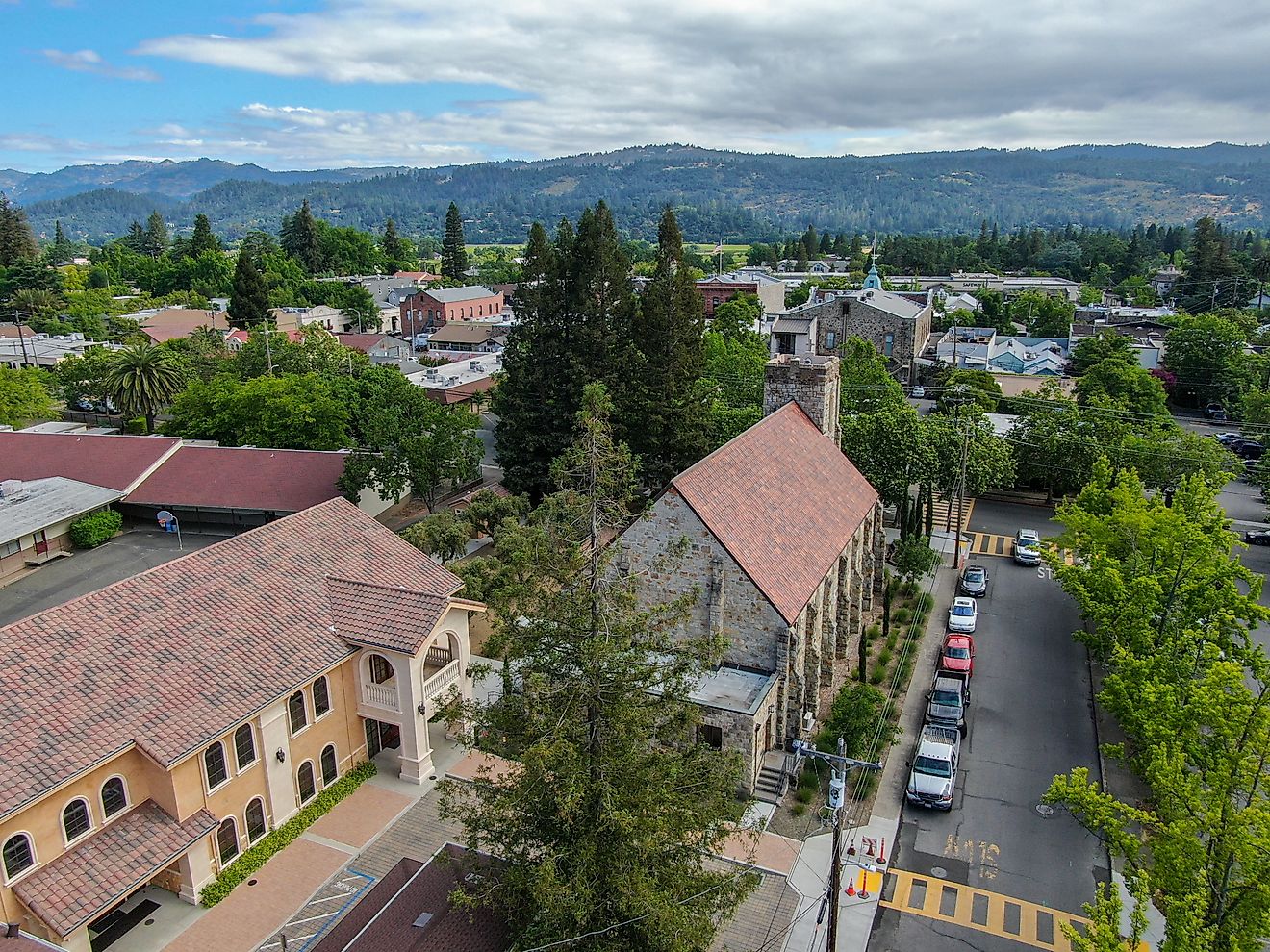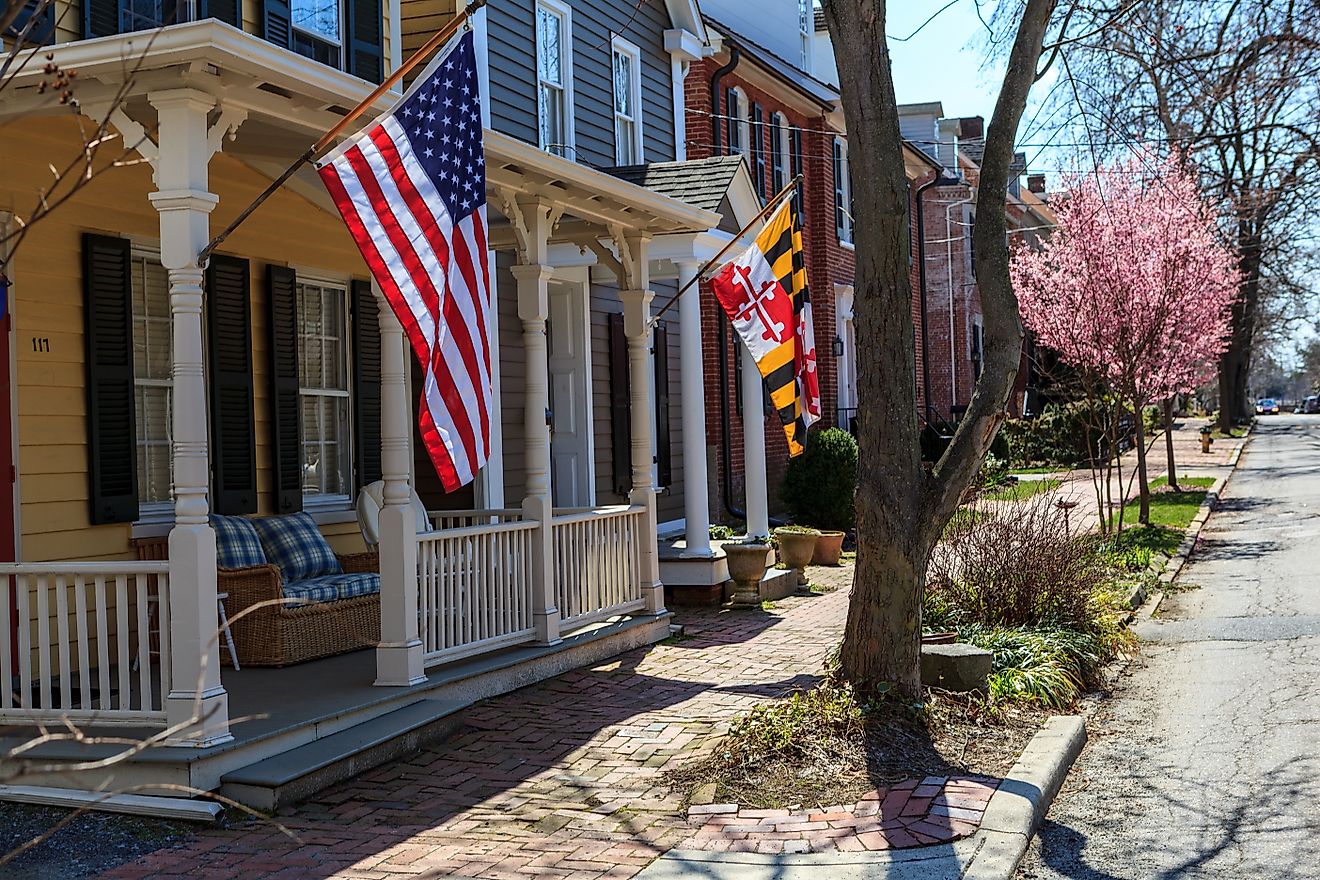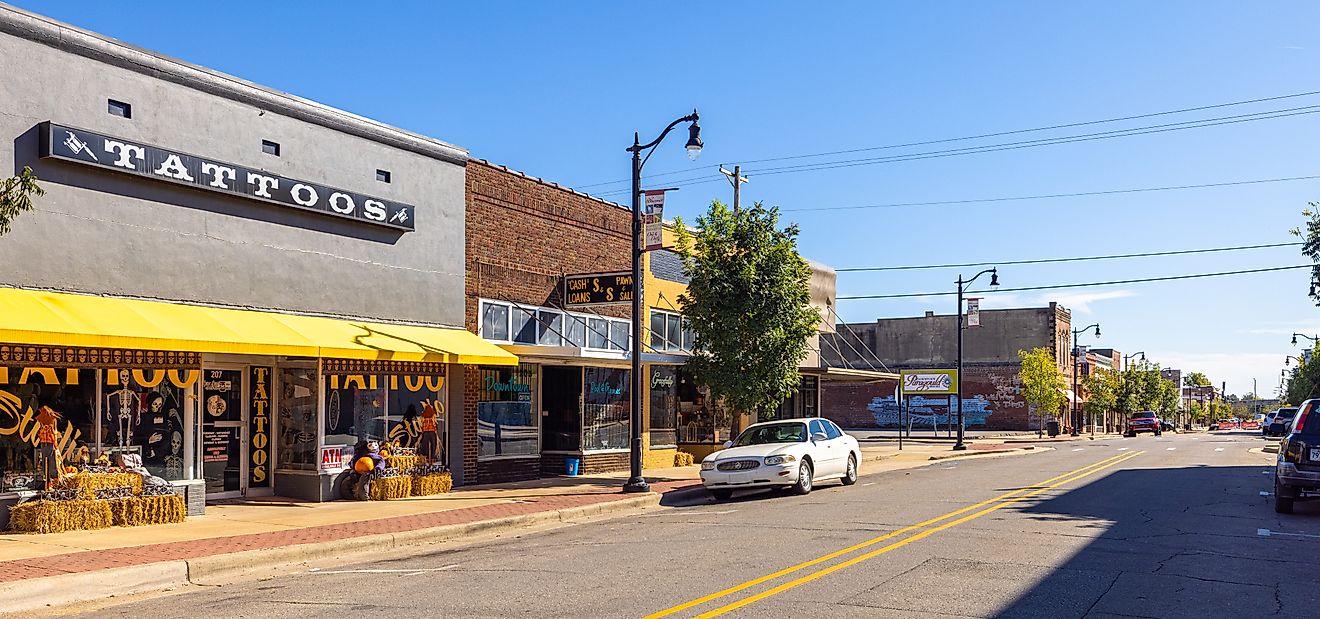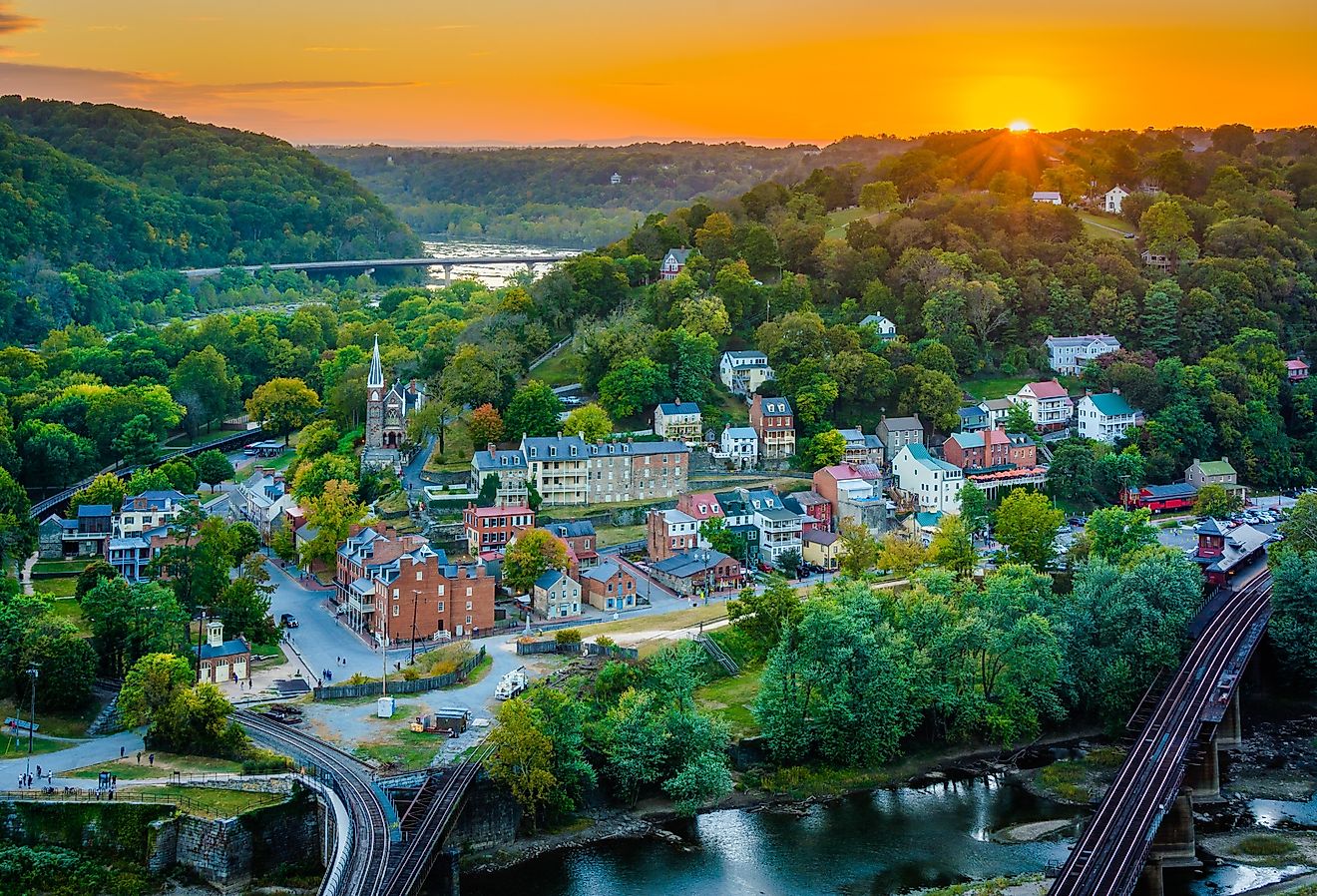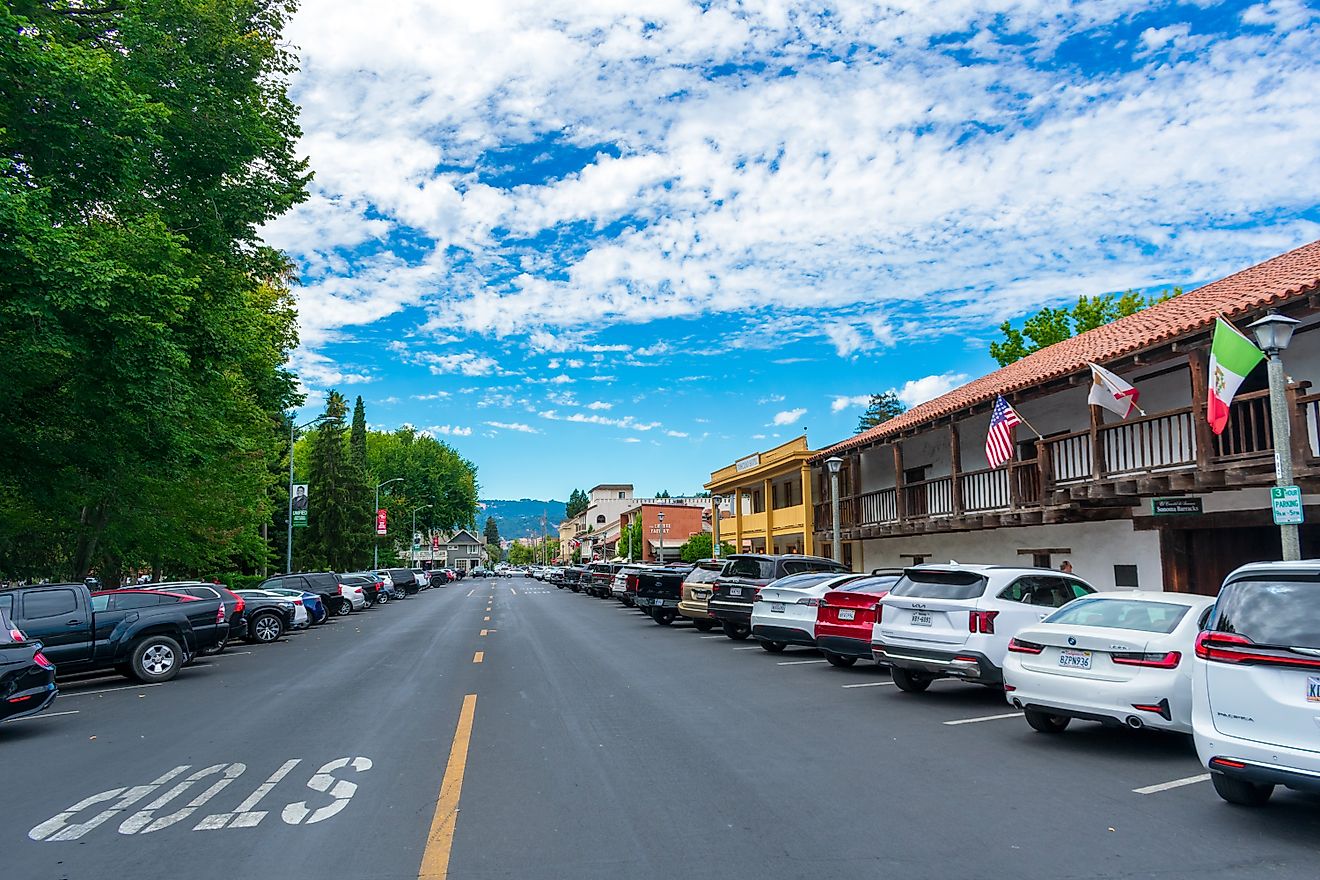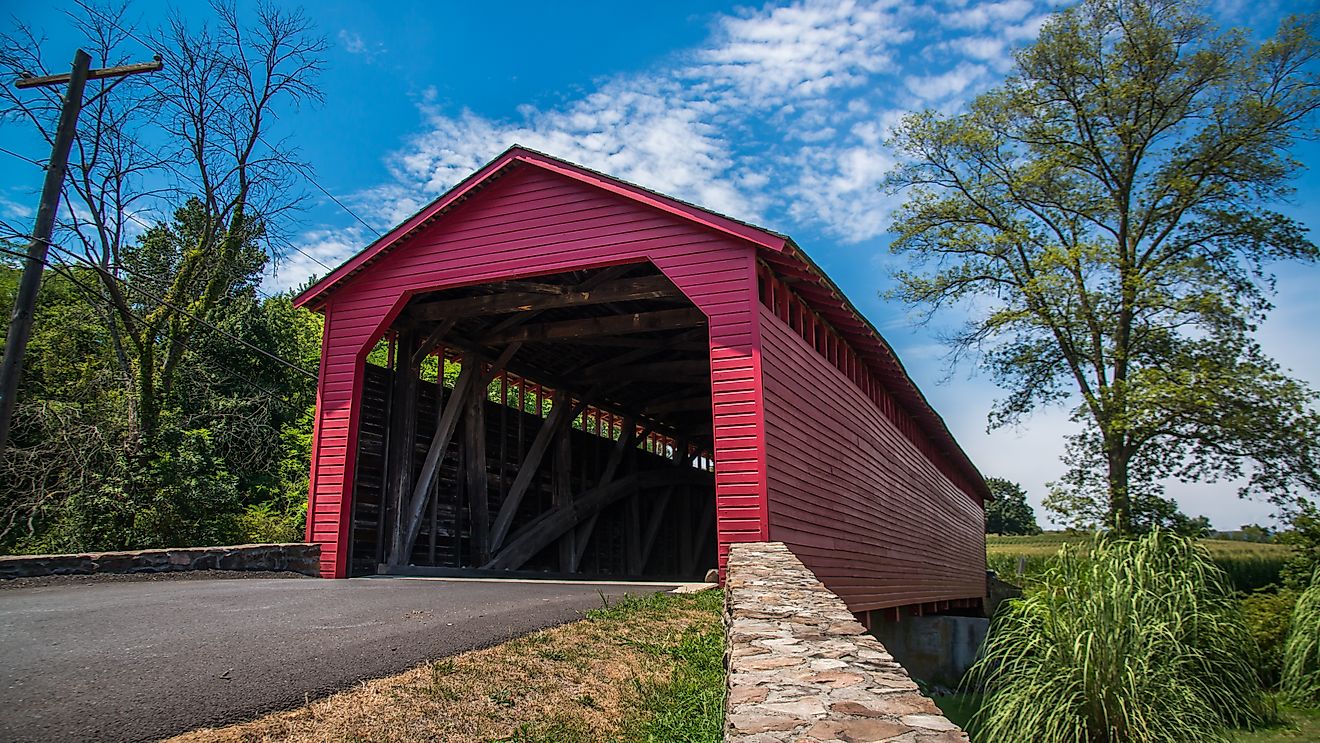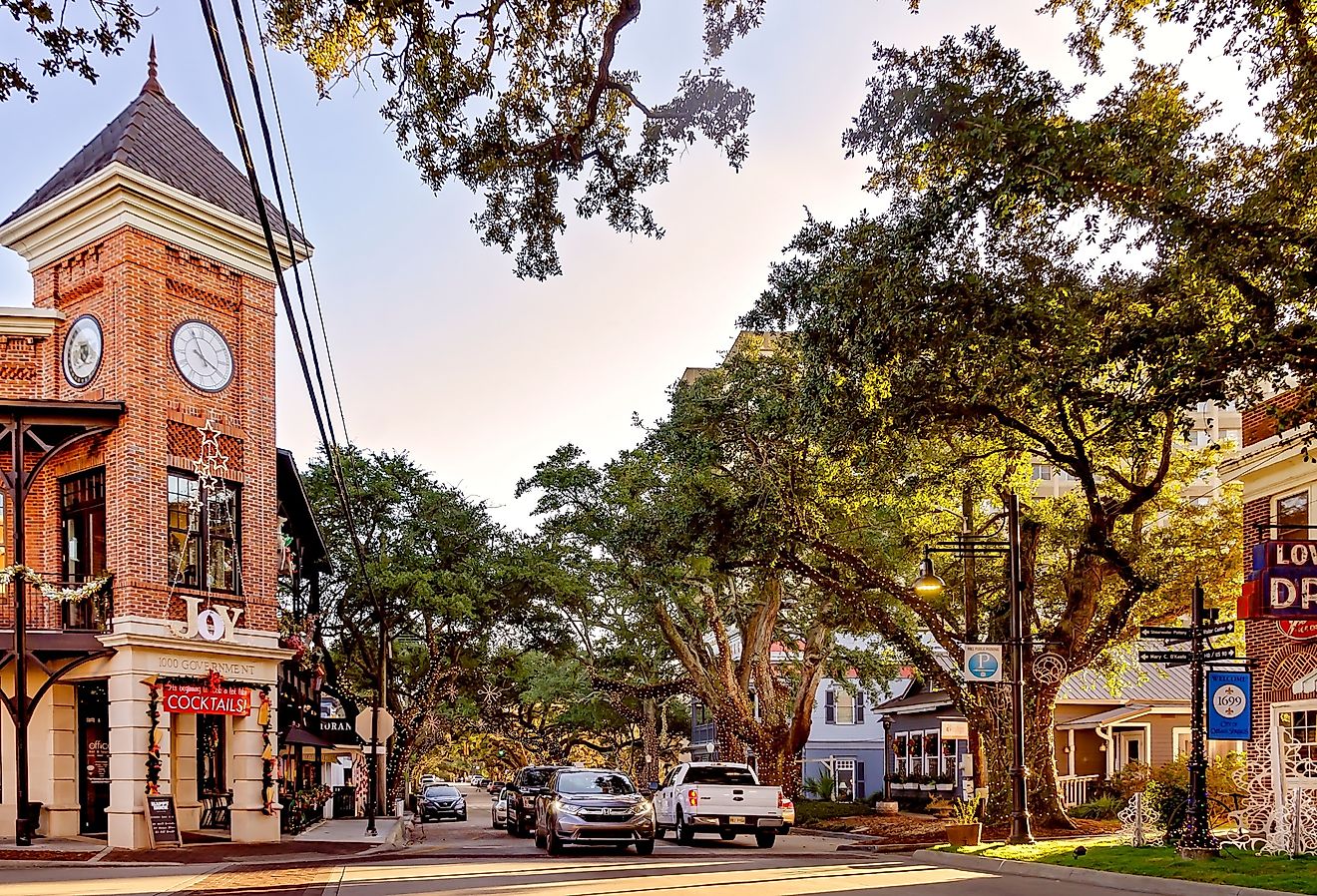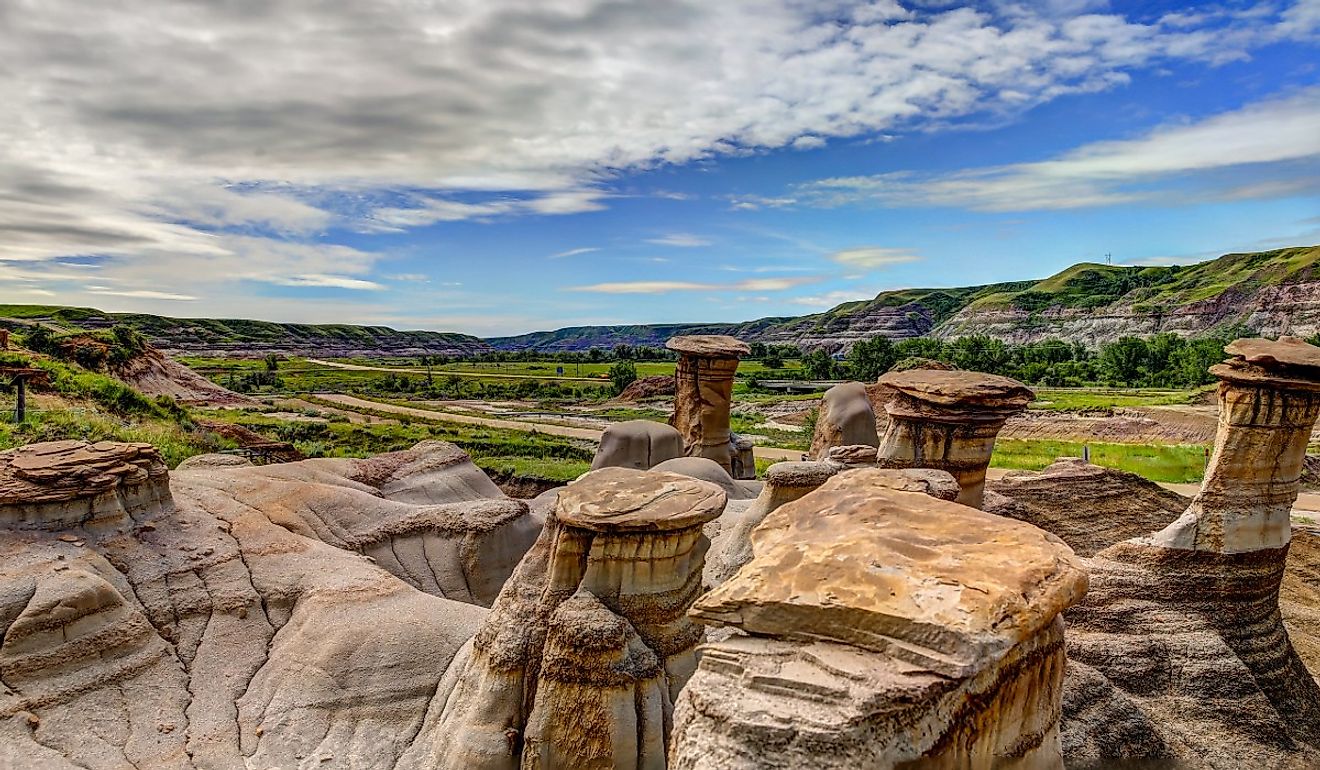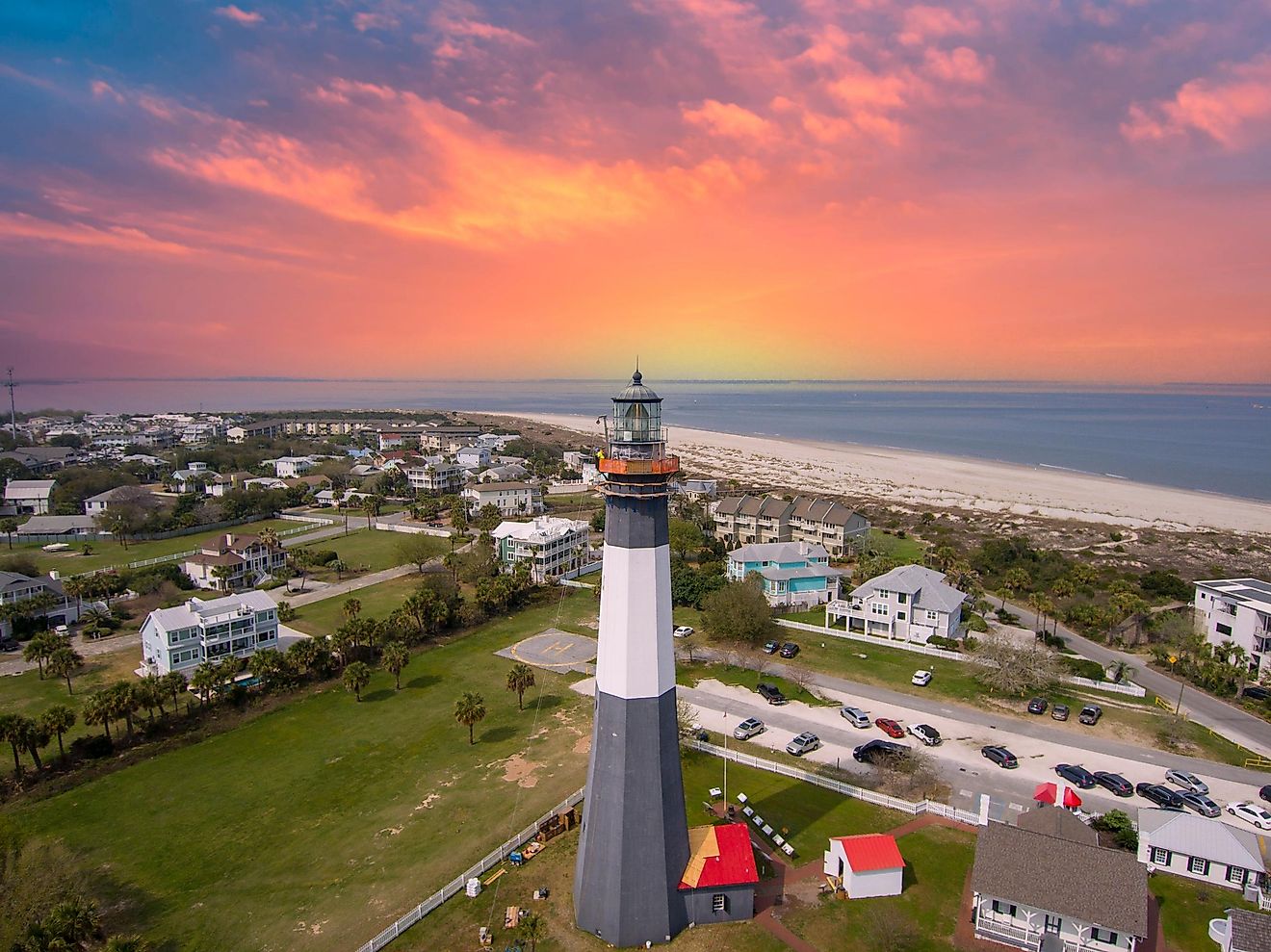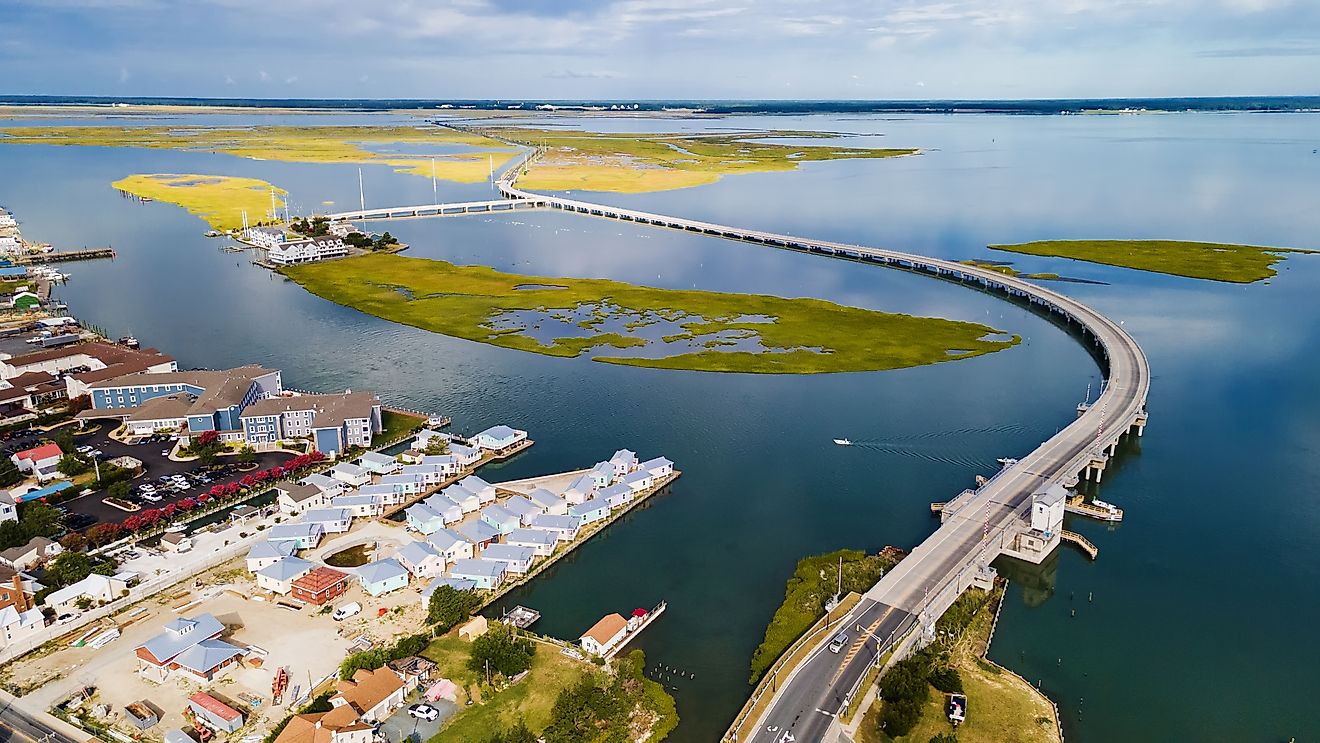
Rainbow Falls, California
Revered by many for its rainbow projected from the sun’s midday rays, the Rainbow Falls is a spectacle found in the Mammoth Lakes of California. Situated in the Middle Fork of the San Joaquin River, the Rainbow Falls is its highest waterfall and is indeed a beautiful sight. Being in the Eastern Sierra Nevada Mountains known for its desert landscape, outdoor recreation is common among visitors and includes fishing, hunting, hiking, photography, and, yes, even skiing.
Geography Of Rainbow Falls

The Rainbow Falls is a staple landmark in Devil's Postpile National Monument in Madera County. As a part of the Mammoth Lakes region, visitors are drawn to this part of California for its four-season outdoor recreation. Both Mammoth Mountain and nearby June Mountain serve as popular destinations for skiing in the winter months. With Mammoth Lake being the leaping-off point for Devil's Postpile National Monument and home to the Rainbow Falls, Yosemite National Park is also a stone's throw away. There are numerous fishing spots located throughout this Sierra Nevadan destination. However, Mono Lake to the north of Rainbow Falls is of note for its saltwater fishing.
Geology Of Rainbow Falls

The Rainbow Falls is the result of a basalt lava lake that erupted approximately 80,000–100,000 years ago at nearby Upper Soda Springs. This natural event took place over two stages, which saw lava pulses emanate 0.62 miles from the San Joaquin River basin. The primary lava pulse occurred westward of the Middle Fork of the San Joaquin River and slowly pooled on the spot without much outward movement. Being rich in magnesium and iron, basalt lava burns hotter than other types of lava; it is also for this reason that it is less viscous. The second lava pulse was reclusive to the first, and while it slowly cooled, it shattered vertically. As a result, the initial eruption cooled horizontally, making platy rhyodacite, which is seen in abundance around the cliffs as of today. This is better known as the geological phenomenon of that columnar basalt that attracts many to Devil Postpile National Monument. Concerning the waterfall, erosion from the San Joaquin River chipped away at the rhyodacite to form the 101-foot plunge waterfall of Rainbow Falls. Over thousands of years of being filed down, it has receded back 150 feet from its original position on the San Joaquin River.
Hikes Of Rainbow Falls

There is a solid reason why the Rainbow Falls are a top attraction in Eastern California. The Rainbow Falls via the Devil's Postpile trail, a 4.9-mile maintained hiking trail, takes visitors through basalt rock formations to Rainbow Falls. The Devil's Postpile Trail offers sweeping views of the volcanic desert landscape, the High Sierra, San Joaquin River, and the Adam Ansel Wilderness area. Being of various skill levels throughout the trail, those who complete the trail in its entirety are rewarded with a view of the grand 101- foot Rainbow Falls. When timed right, visitors can be rewarded with the image of a rainbow that appears over the waterfall at the midday peak of the sun. Another point of interest is Minaret Falls, which serves as an alternative to the crowds found trekking to Rainbow Falls. With all-encompassing valley views, visitors won't want to miss this example of a tumbling waterfall. Being 2.6 miles in total, this out-and-back trail is leisurely, and being less popular allows trekkers the chance to spot wildlife like bears and coyotes. As for all the trails, dogs are permitted but must remain leashed at all times.
Attractions Around Rainbow Falls
Mammoth Mountain Ski Area

Adjacent to the Devil's Postpile National Monument is the famous ski resort of Mammoth Mountain. With scenic gondolas providing views of the Sierra Nevada and Inyo National Forest, visitors can partake in mountain biking, hiking, skiing, and snowshoeing. With 3,500 acres of terrain to boot, Mammoth Mountain hosts many events throughout the year, with its resort serving as a base for all activities. Regarding winter activities, guests who wish to see the Rainbow Falls can ski 17 miles from Mammoth Mountain Resort to Devil Postpile National Park by way of Red Meadow Road. At 11,053 feet in height, Mammoth Mountain is continuously voted California's best place for skiing and biking.
